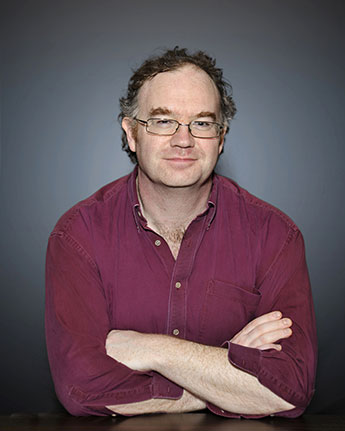
Machine learning trailblazer Professor Conor Ryan has been appointed Deputy Director of Lero, the University of Limerick-based Research Centre for Software.
A Lero team led by Professor Ryan has just completed a world-first first with the fabrication and design of a silicon chip without direct human input and patented the process.
The UCC graduate, now Professor of Machine Learning at University of Limerick, said it was incredibly rewarding to work with engaged industrial partners and hopes their latest patent heralds the possibility of creating a new high-tech export-based industry in Ireland.
“Working directly with commercial entities allows us to tackle critical challenges that push the boundaries of software innovation. At Lero, researchers address diverse issues, from cancer treatment to generative AI to data privacy, showcasing the remarkable breadth of innovation in Ireland,” he said.
Professor Ryan said that early in his career, he received outstanding help and advice from senior colleagues, most notably Professor John R. Koza and Professor Tony Cahill.
“It’s exciting to now be able to do the same for up-and-coming researchers, especially those facing systemic barriers. Being part of a startup and spending time in Silicon Valley shaped my perspective on innovation and leadership. At Lero, I’m excited to help advance software research that delivers impact locally and globally. With every euro invested yielding a five-fold return, Lero’s value to the economy is undeniable,” he added.
Lero’s Director, Professor Lionel Briand, said it was a major confidence boost for everyone in Lero that a leading machine-learning expert such as Professor Ryan had agreed to play a crucial leadership role in the centre in the years ahead.
“Ireland depends on Lero as the country’s national software research centre to drive future jobs, innovation, and competitiveness in its large ICT industry. Software development is indeed Ireland’s second biggest industry, worth €66.5 billion to our economy and employing 35,000 people. We need experts like Prof Ryan to lead this research to keep our tech industry at the forefront of global innovation,” he added.
Professor Ryan encouraged both male and female students to take an active interest in STEM (science, technology, engineering, and mathematics), as he did during his childhood. He also believes parents play a crucial role in fostering this interest.
“I was just nine years old when my father got our first computer—a Sinclair ZX81 with minimal processing power and only 1KB of memory, which is like a drop of water compared to the ocean of speed and storage in modern mobile phones. That experience changed my life, and I have been fascinated by technology ever since,” he recalled.
